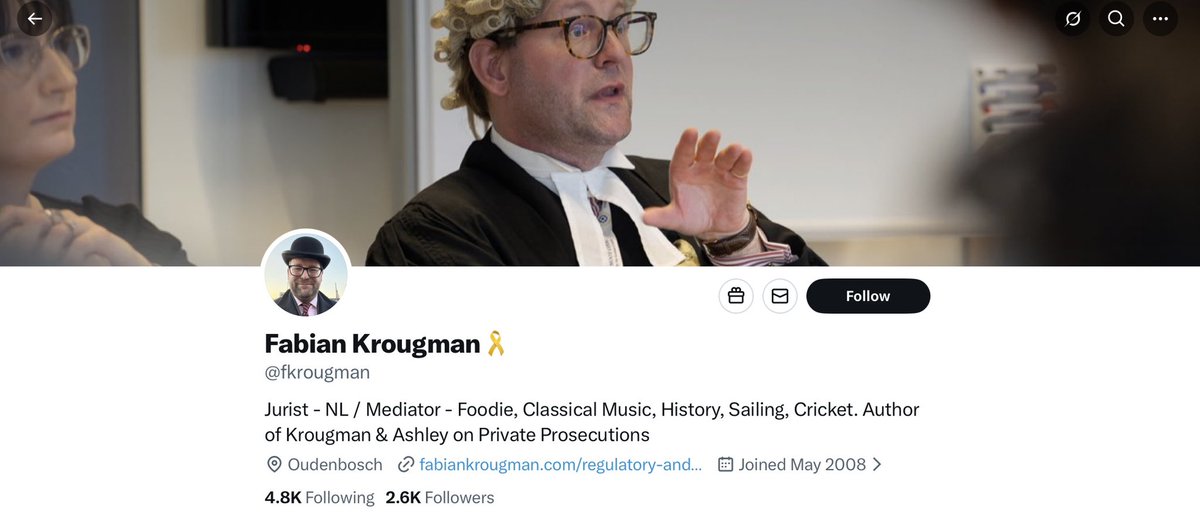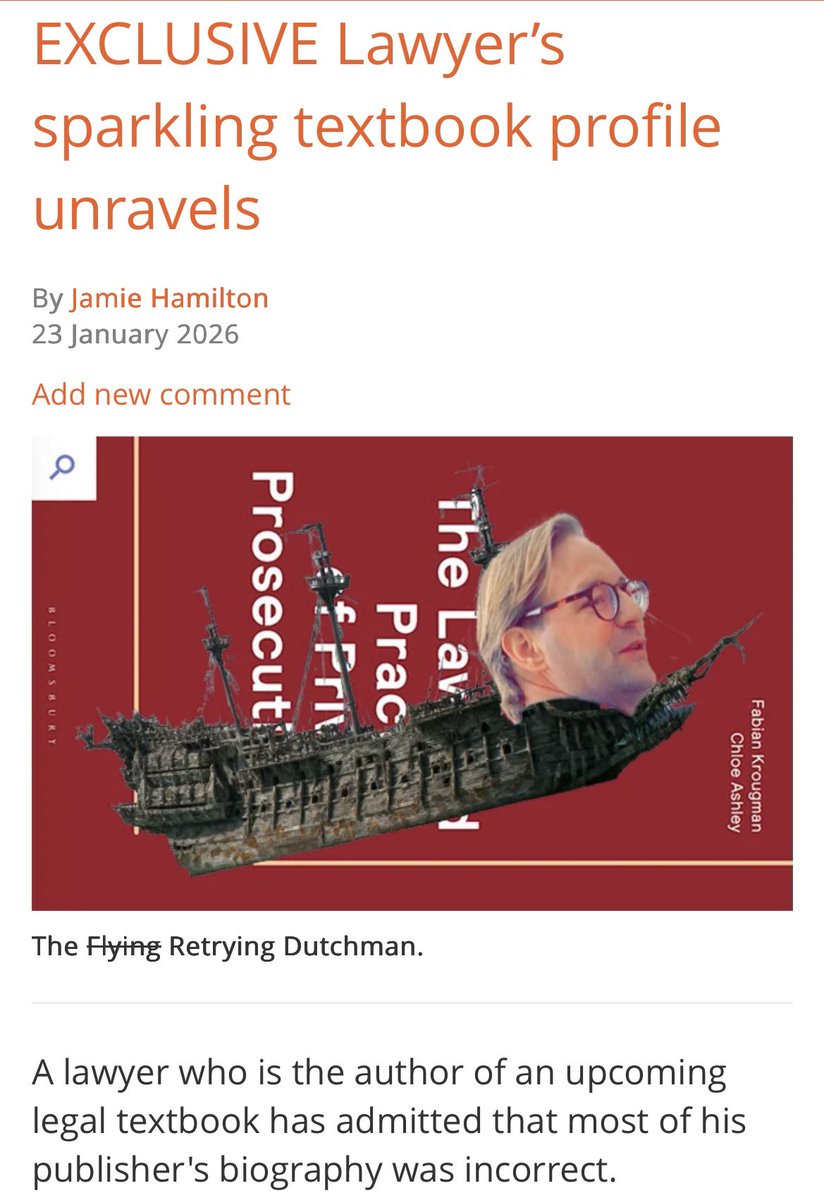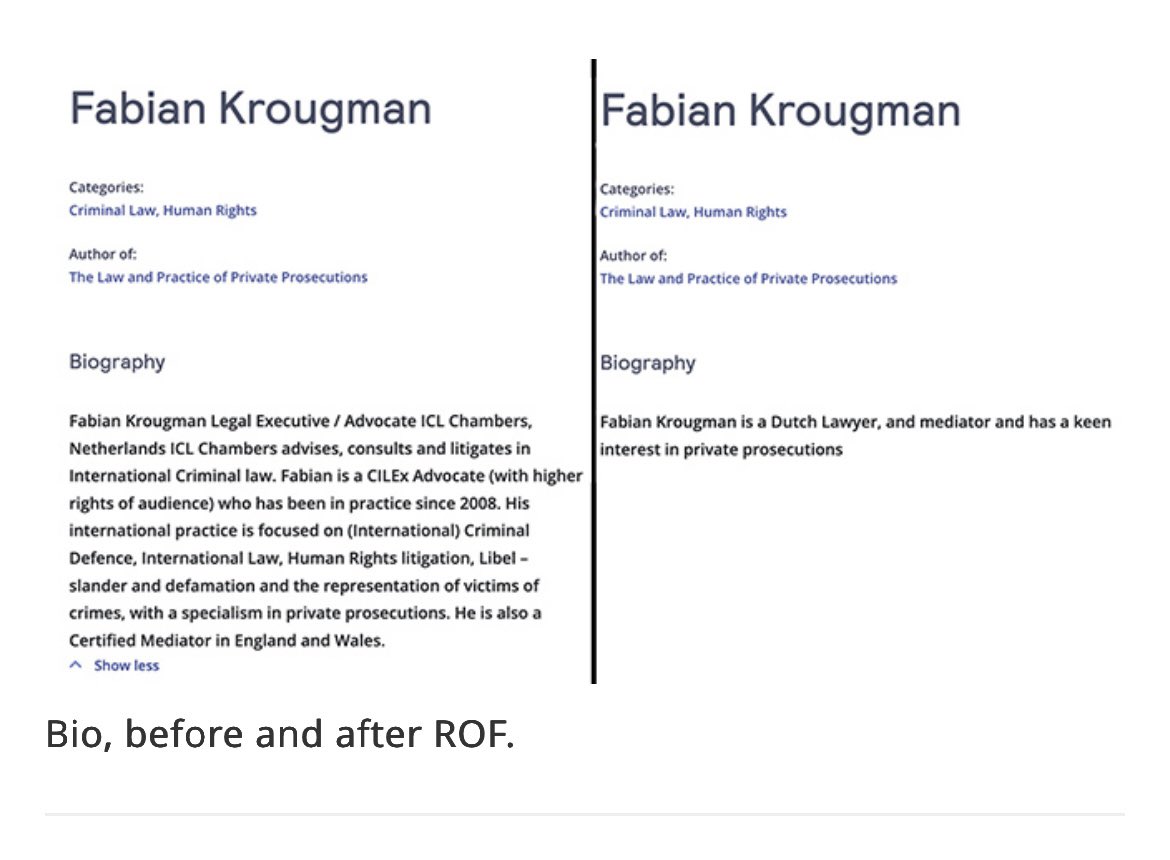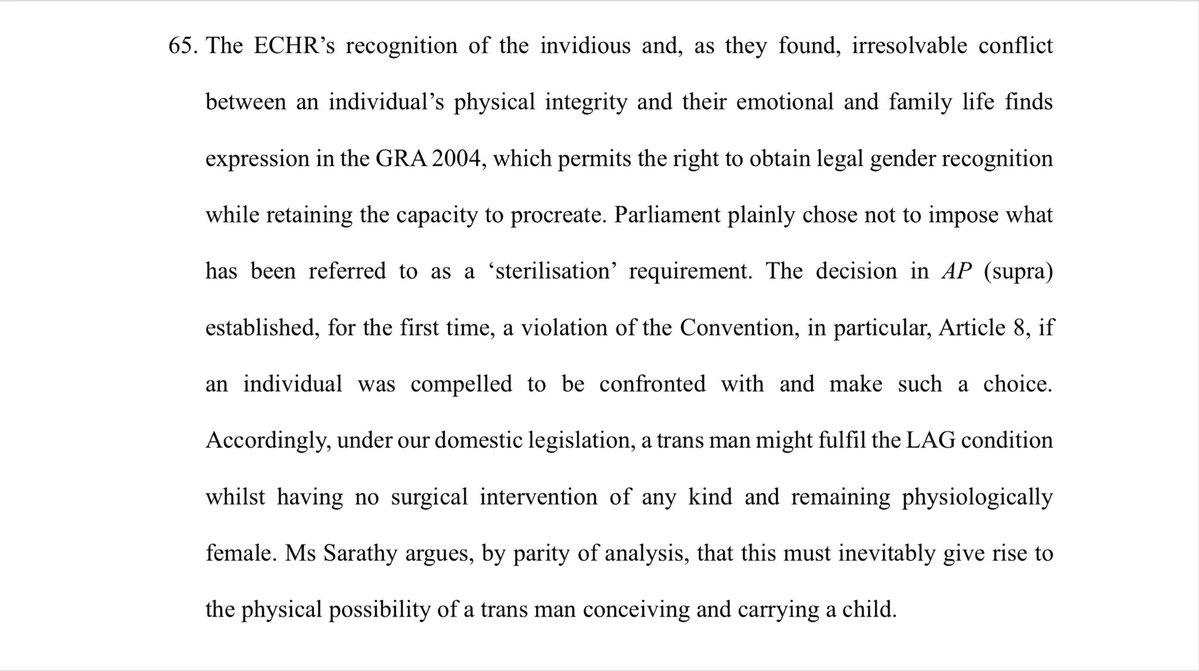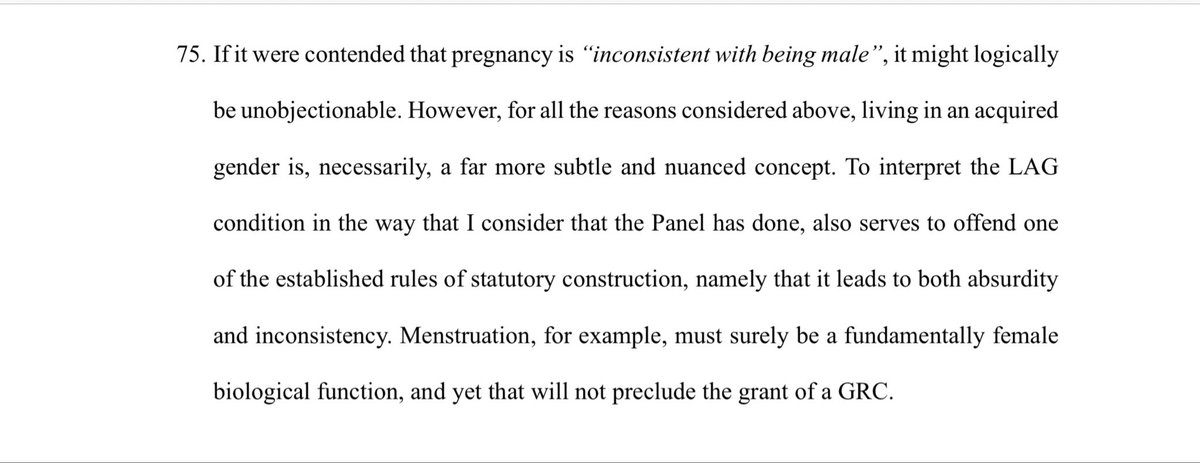Quoted in this story on inaccuracies in the book, The Hidden Case of Ewan Forbes, in today’s Times (£) thetimes.co.uk/article/battle…
https://twitter.com/barbararich_law/status/1467509288876838919
And in this story on The Hidden Case of Ewan Forbes in the Daily Mail dailymail.co.uk/news/article-1…
The author, Zoe Playdon, has herself published her correspondence with The Times in full yumpu.com/en/document/vi…
And likewise her correspondence with the Daily Mail online yumpu.com/en/document/re…
I’ve nothing but contempt for this sort of shabby insinuation by @mimmymum from behind a block, and without attempting to engage with any issue of substance about the book 


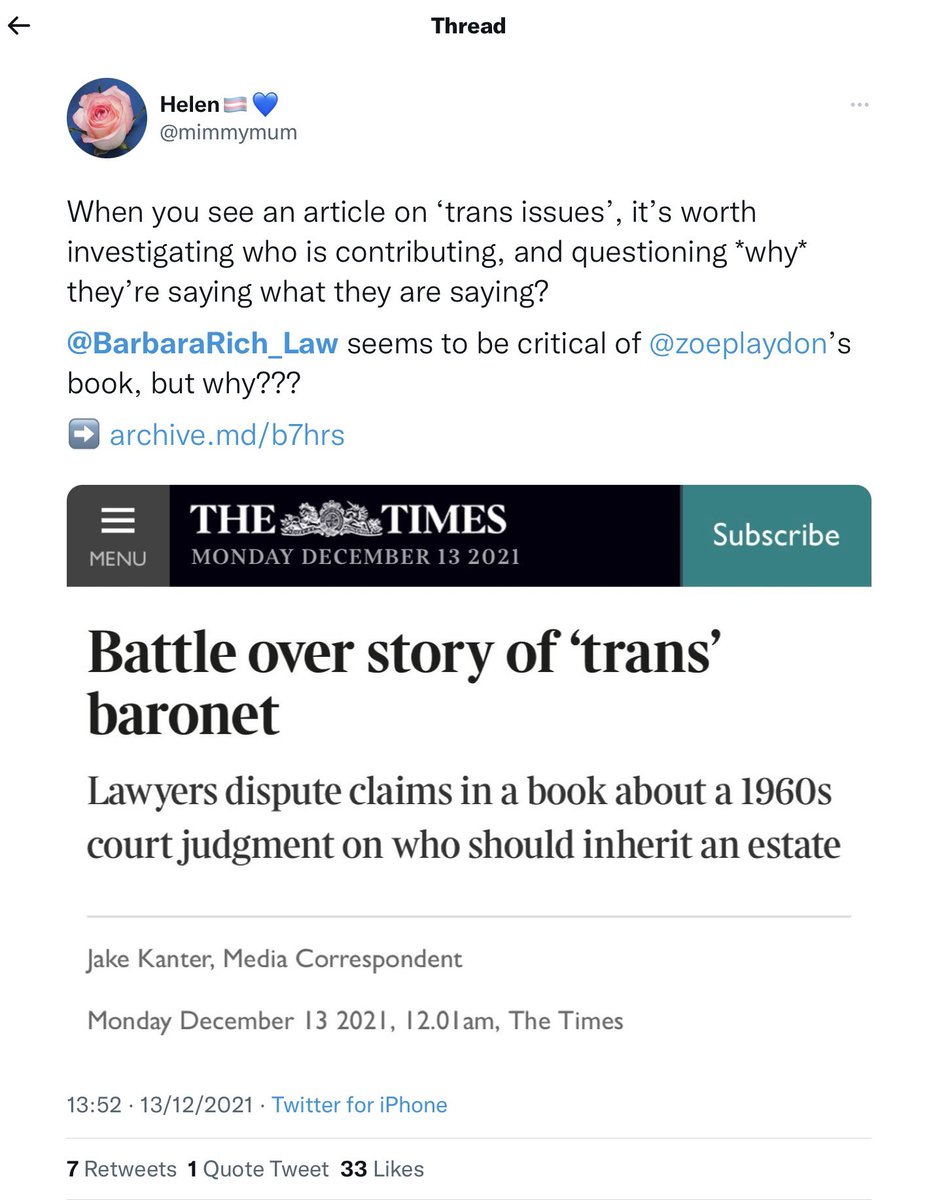
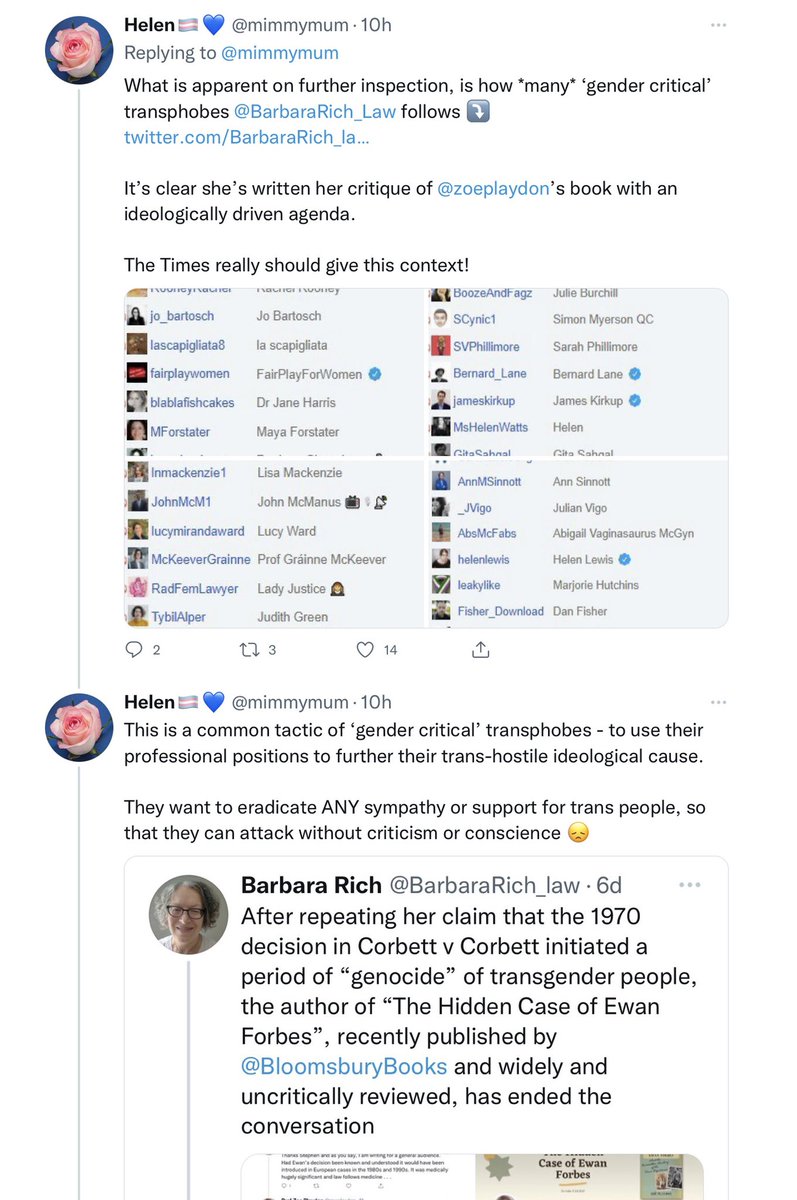
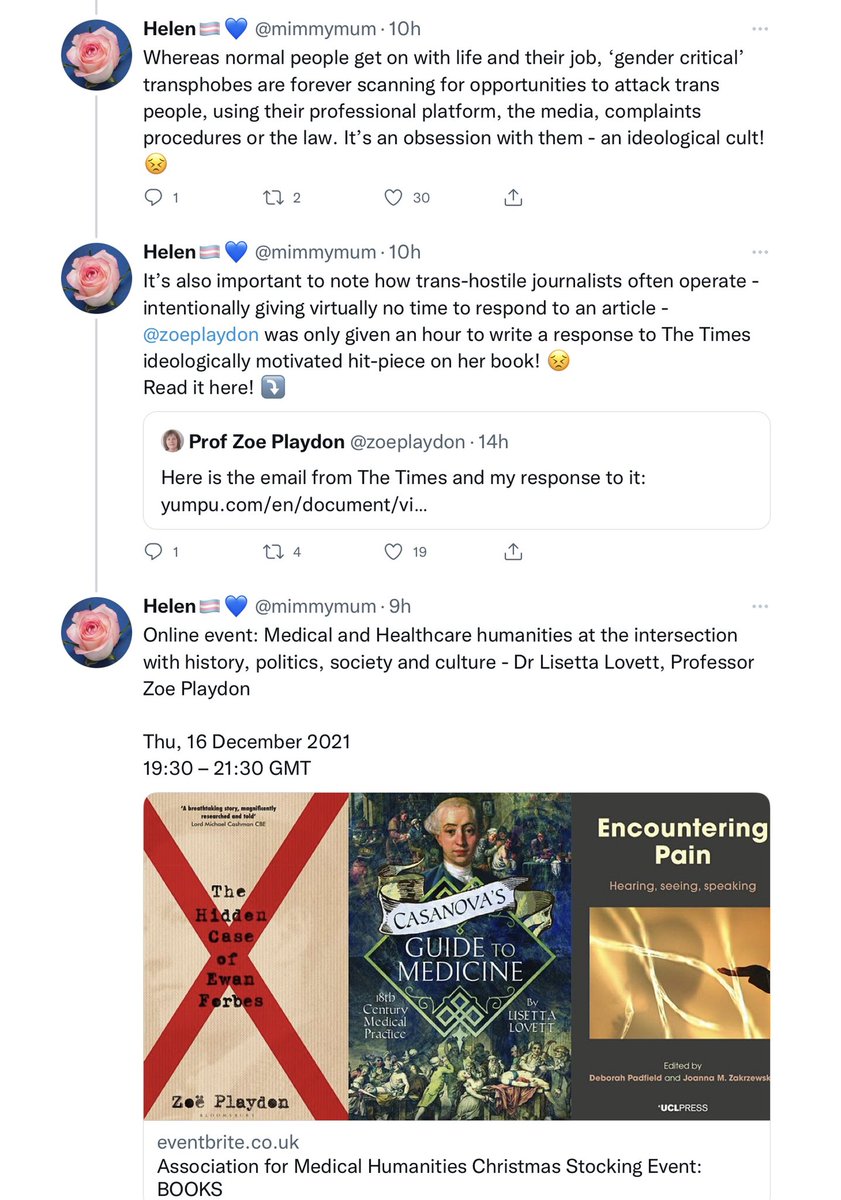
For those for whom an activist agenda drives their perception of every argument, here is @JusticeTyrwhit making it clear that he “would probably support almost all of Prof Playdon’s political agenda” but that “there’s no need to revise the past to support that” 

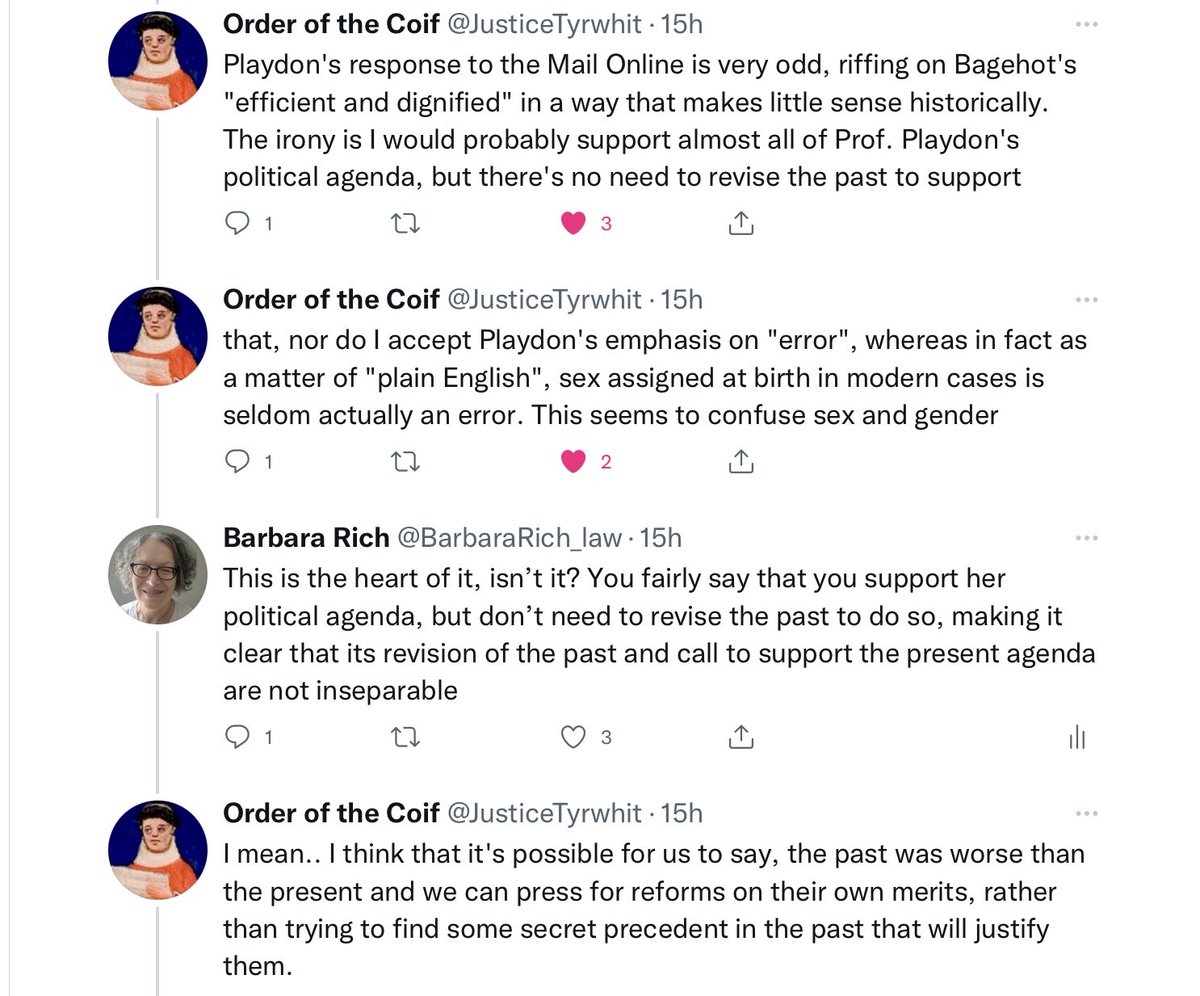
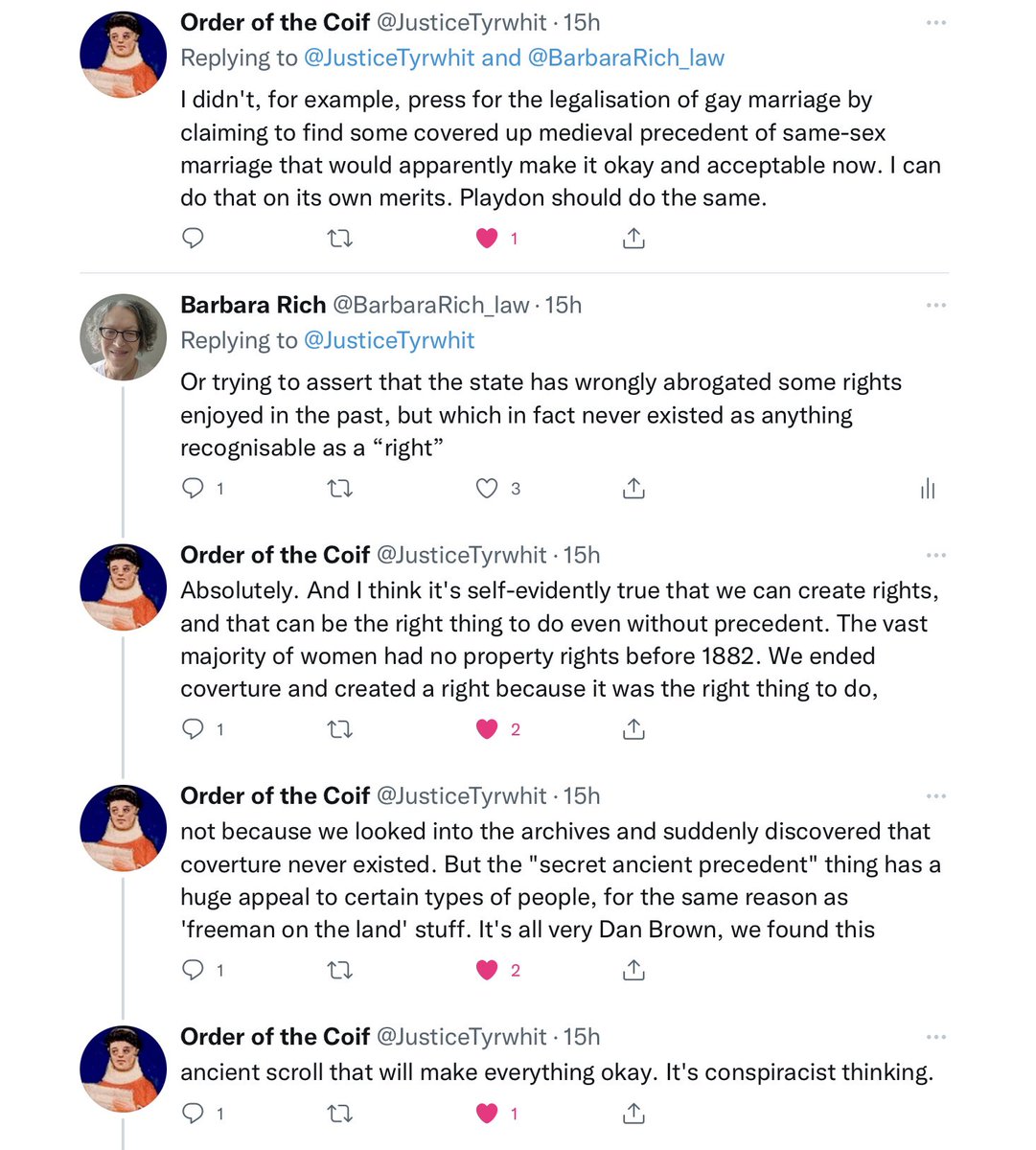
@Scott_Wortley, who has unimpeachable credentials as a person qualified to comment on Scots law, has tweeted this thread of response to the assertions made by Zoe Playdon in her book and in response to the two newspapers which have published criticism of the book
https://twitter.com/Scott_Wortley/status/1470761189466587138
I’m pleased to see and acknowledge that @mimmymum has deleted her defamatory tweets and apologised 
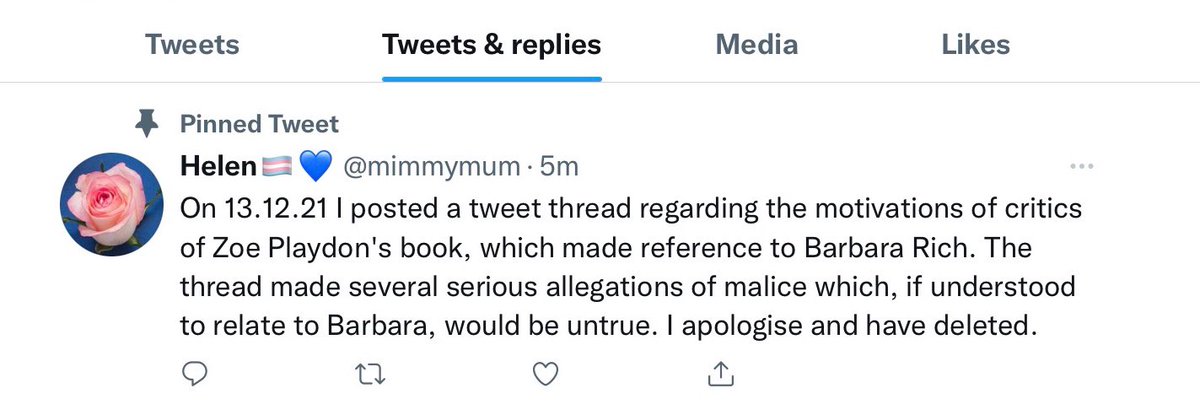
Rather less impressed to read that she has blocked those who have retweeted her acknowledgment of deletion, and apology
And on a more positive note, @Scott_Wortley has helpfully set out all the Scottish law points which are relevant to the so-called hidden case of Ewan Forbes and the narrative of the book in one place here
https://twitter.com/scott_wortley/status/1471166497334697988
This tweet includes the Times obituary of Scottish law lord, Lord Jauncey, who as Charles Jauncey QC acted for Ewan Forbes-Sempill in the “hidden” 1967 case. The case was on public record long before Jauncey’s death in 2005, but isn’t mentioned, despite its supposed importance
https://twitter.com/helenpringle/status/1471149319721947141
If there was anything other than fantasy to support the idea that the Forbes baronetcy dispute and its outcome risked precipitating a constitutional crisis comparable to the abdication of Edward VIII, this obituary of Lord Jauncey would have been an obvious place to mention it
@Scott_Wortley has added a significant postscript to his notes on Scottish law and the apparent misunderstanding of it in the recently-published book “The Hidden Case of Ewan Forbes” scott-wortley.medium.com/some-quick-tho… 
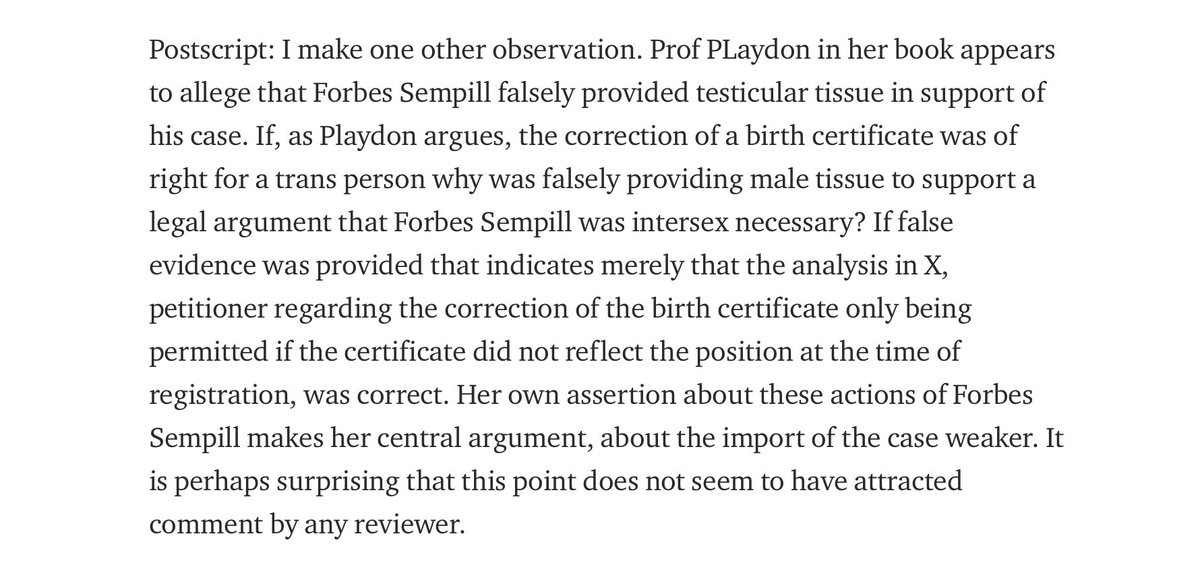
Very pleased to see the publication of this letter trenchantly criticising @TheTLS’s review of The Hidden Case of Ewan Forbes. The review was written by a supportive campaigner, not an objective critic of a flawed work @Resjudicatamyft @mrsSkys @Scott_Wortley @void_if_removed 
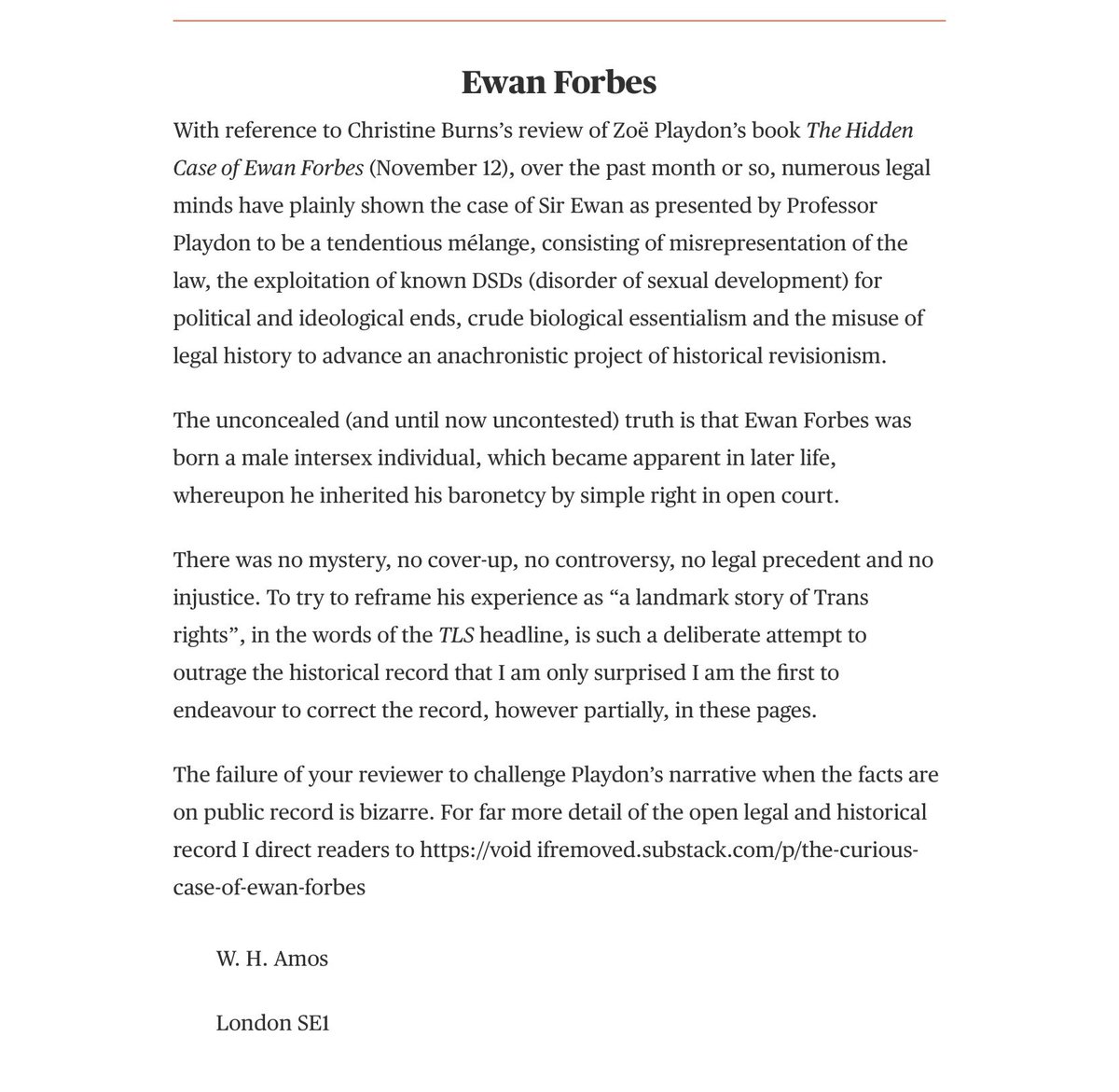
Although the writer of the letter makes one small slip in referring to “open court”. The 1967 hearing by Lord Hunter of the petitions of John and Ewan Forbes-Sempill, determining that John was not the male heir to the Forbes baronetcy, was in chambers (private) as a summary trial
• • •
Missing some Tweet in this thread? You can try to
force a refresh


